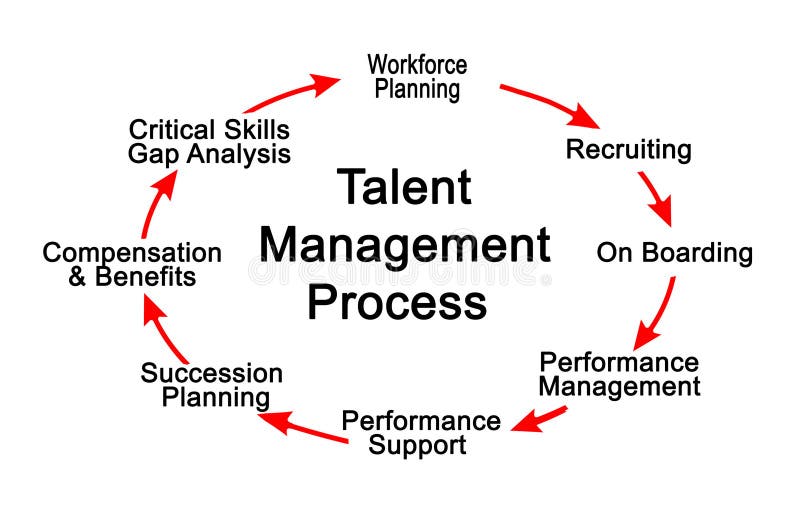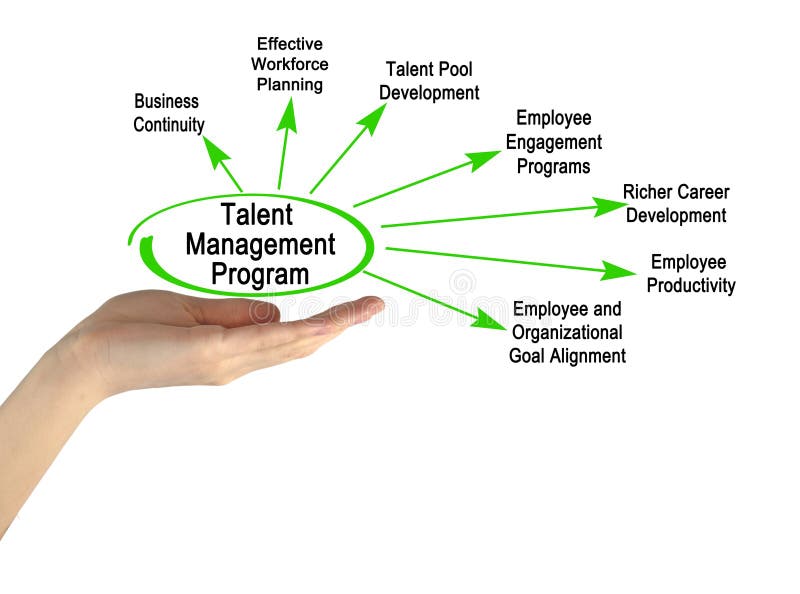Introduction
Talent management is about using data from workforce, succession and contingency planning tools to understand what talent exists within the organisation, what talent populations are needed, and the identification of individuals who are particularly valuable to an organization. CIPD 18 Sep 2018
Talent management seeks to attract, identify, develop, engage, retain and deploy individuals who are considered particularly valuable to an organization.
CIPD 18 Sep 2018
Talent management is an organization's commitment to recruit, hire, retain, and develop the most talented and superior employees available in the job market.Susan M. Heathfield ( 2019 )

Talent Management = holistic view of entire HR life cycle, including recruiting, assessment, hiring, on-boarding, training/development, performance management, and finally succession planning.
( Talent Management A Holistic Approach to Managing your Workforce - Robyn Warren and Stacy Edwards-Adrian )

https://www.dreamstime.com/
What Processes Are Part of a Talent Management System?
- Recruitment planning meeting
- Job description development
- Job post writing and recruiting location placement for the posting
- Application materials review
- Phone or online screening interview
- In-house interviews that can involve multiple meetings with many of your current employees
- Credential review and background checking
- Making the job offer to the selected person
- Agreeing on the amount of the offer
- Employee starting day and onboarding process
- New employee welcome information and introductions
- On-the-job training
- Goal setting and feedback
- Coaching and relationship building by the manager
- Formal feedback systems such as performance management or an appraisal process
- Ongoing employee development
- Promotions, lateral moves, transfers
- Employment termination by choice of the employee or cause by the employer
Journal of World BusinessVolume 54, Issue 2, February 2019, Pages 82-92
Talent Management as a Business Strategy
Talent management is a business strategy that organizations hope will enable them to retain their topmost talented and skilled employees. Just like employee involvement or employee recognition, it is the stated business strategy that will ensure the attraction of top talent in competition with other employers.
When you tell a prospective employee that you are dedicated to a talent management strategy that will ensure that he or she will have the opportunity to develop professionally, you attract the best talent. This is because studies show consistently that the opportunity to continue to grow and develop their professional and personal skills is a major motivator for why employees take and stay at a job.
Conclusion
Talent Management is a Key factor in HRM where it functions for a direct impact on people of the Organization .Prudent Organizations , master diverse talent management tools to retain best talent , motivate and improve skills and perceptions towards proper HR functioning
Reference
- CIPD 18 Sep 2018
- usan M. Heathfield ( 2019 )
- CIPD 18 Jul 2018
- ( Talent Management A Holistic Approach to Managing your Workforce - Robyn Warren and Stacy Edwards-Adrian )
- Gallardo- Gallardo , Dried & Gonzalez - Cruz , ( 2012 ) , what is the meaning of talent in the world of work ? Human resource Management View 23 , 290 - 300




